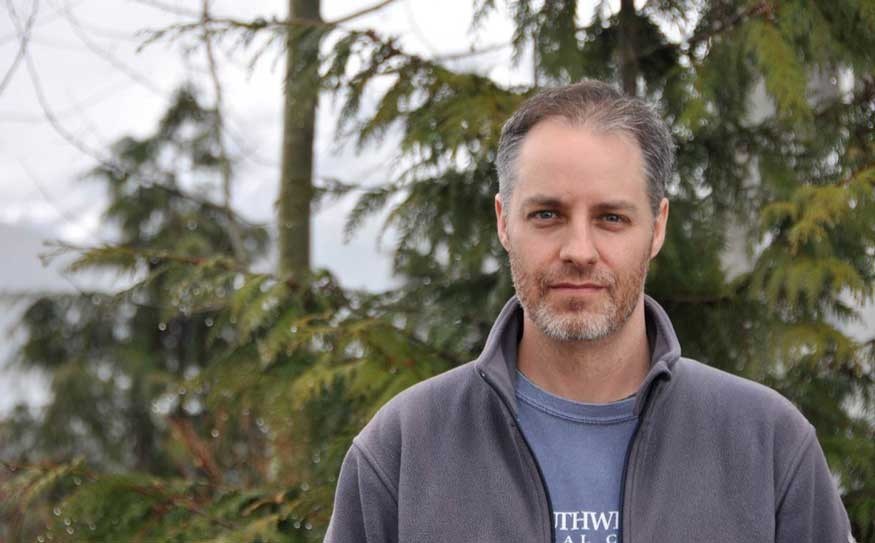If he had to choose the worst person in history, Quest professor Dr. Neal Melvin deadpanned that Thomas Edison takes the cake.
While he has been widely credited with "inventing" the light bulb — a distinction that really belongs to Humphry Davy — there's no question that Edison improved on that invention, creating a commercially practical, reliable and long-lasting source of light that could be used to lights homes.
And perhaps changed the way we sleep forever.
Joking aside, Melvin, a neuroscience and molecular biology professor and self-confessed "terrible sleeper," went on to say: "The sleep we're getting now, I would argue, is highly artificial."
In an entertaining hour-and-a-half lecture, peppered with lots of audience questions, Melvin talked about the "Science of Sleep," a relatively new field of study. His talk, the seventh installment of the Quest Lecture Series at the Whistler Public Library last week, flows from a course he teaches at Quest University in Squamish.
He touched on the purpose of sleep, what motivates us to sleep, and the consequences of not getting enough sleep.
"I would argue that sleep is a grossly under-rated aspect of our health," he said, with insufficient sleep leading to fatigue, concentration/memory loss, weight gain, and decreased immune system function.
There are two things that make humans want to sleep: the Circadian Effect and the homeostatic factor. The former is the biological process that occurs every 24 hours, adjusted by environmental clues such as daylight. In other words, as evening falls, the body takes its cues from the dwindling light and prepares for sleep, releasing the brain hormone melatonin.
The latter, the homeostatic factor, is the fact that the longer you stay awake, the stronger the drive is to go to sleep.
It may not be natural, however, to sleep in one long prolonged period. There is evidence to suggest, said Melvin, that humans used to sleep in two separate periods throughout the night, sleeping in the early evening until midnight, waking up for a few hours, and then going back to sleep.
Sleep, when put in the evolutionary context, is an interesting concept. "It's a dangerous thing to do," said Melvin. "Sleep means you could lose your life, in evolutionary terms."
And so, there must be a reason to sleep, he said.
It turns out there is — memory consolidation. The brain is replaying and rehearsing what it learned that day when the body is sleeping.
A study of rats in Alberta that were learning to navigate through a maze showed that at night, when the rats were sleeping, their brains were rapidly replaying the maze over and over again. The brain is active even when the body is sleeping.
Roughly 75 per cent of the night is spent in Non REM (Rapid Eye Movement) sleep. In NREM sleep, thought patterns are logical, the body moves a little, there is typically no dreaming.
REM sleep on the other hand is characterized with no body movement, rapid eye movements, dreams.
When he was tested at a sleep clinic, Melvin learned he spent about four per cent of his night in REM sleep, unlike the 25 per cent most adults get. "My interest in sleep is totally selfish," he joked.
As he answered a range of questions from sleep banks to the relationship between exercise and sleep, Melvin left the audience with this reminder: "Sleep health is something to really pay attention to."
There are two sessions remaining in the free Quest Lecture series at the Whistler Library. On April 10, Dr. Normand Perreault will talk about "Urban development in the XXIst century: blessing or curse?" On May 8 Dr. Erin Wells Bonning will discuss "Black Holes: Signals from the Vasty Deep."




